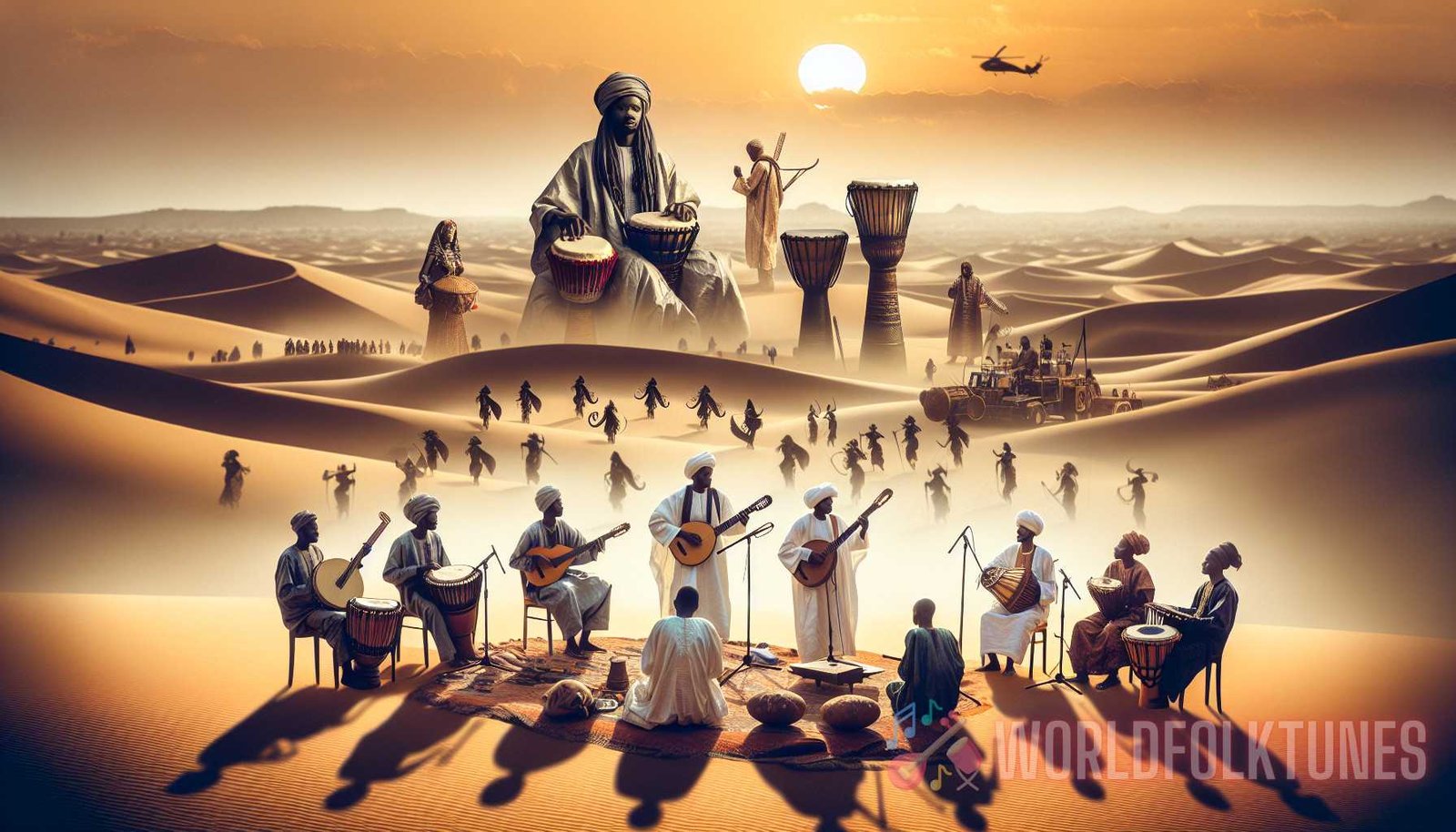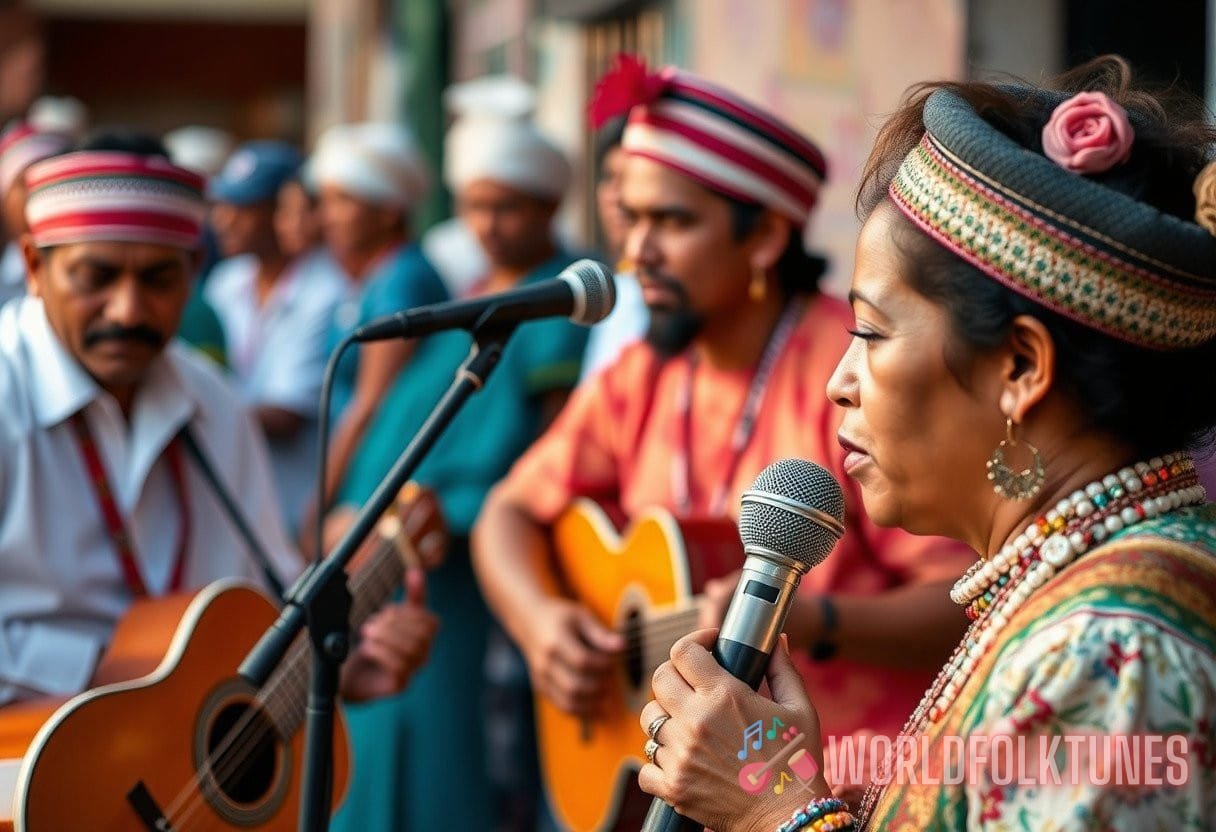Preserving Cultural Legacies: Exploring the Timeless Beauty of Traditional Music at Unique Global Celebrations
Traditional melodies are the threads that connect us to our past, preserving the cultural legacies of our ancestors and transporting us to distant lands and times. These ancient tunes, passed down through generations, carry the stories, values, and spirit of different cultures around the world. By immersing ourselves in traditional music, we have the unique opportunity to experience the vibrant diversity of global heritage. From folk festivals to indigenous ceremonies, there are countless celebrations that showcase the timeless beauty of traditional music. In this article, we will delve into some of the most extraordinary events, where captivating melodies intertwine with rich cultural narratives, captivating audiences and nurturing cultural preservation.
The Intangible Heritage of Traditional Music
Traditional music, often rooted in oral tradition, is an intangible heritage that reflects the social, cultural, and historical contexts of various communities. Passed down from one generation to the next, traditional melodies encapsulate the essence of a culture, capturing its collective memory and identity. The rich tapestry of traditional music is shaped by numerous factors, such as indigenous influences, migration patterns, and regional dialects. Whether it is the haunting melodies of Celtic music or the rhythmic beats of African drumming, traditional music speaks to our shared humanity, transcending language barriers and showcasing the immense diversity and beauty of human expression.
As modernity sweeps across the globe, traditional music faces the risk of fading into obscurity. Globalization, the spread of Western cultural dominance, and the advent of technology have all contributed to a decline in the practice and appreciation of traditional music. However, there is a growing recognition of the importance of preserving and celebrating cultural legacies, awakening a resurgence of interest in traditional music. Through annual festivals and celebratory events, communities around the world come together to honor and showcase their traditional music, breathing new life into ancient melodies and ensuring their continued existence for future generations.
Unique Celebrations of Traditional Music
From remote villages to bustling cities, traditional music celebrations take place in diverse locations across the globe. These events provide a platform for musicians, artists, and enthusiasts to come together and revel in the beauty of traditional melodies. Each celebration offers a unique glimpse into a particular culture’s music scene, showcasing traditional instruments, dance forms, and performance techniques. Let’s explore some of the most remarkable global celebrations that highlight the timeless allure of traditional music.
1. Festival Interceltique de Lorient, France
The Festival Interceltique de Lorient, held annually in the enchanting city of Lorient, Brittany, celebrates the vibrant Celtic heritage. For ten days, the city comes alive with an array of concerts, dances, storytelling sessions, and exhibitions. Traditional musicians from across the Celtic nations, including Ireland, Scotland, Wales, Cornwall, and Brittany, converge in Lorient to share their unique traditional melodies. The festival showcases the beauty of Celtic music, promoting intercultural exchanges and preserving the Celtic cultural identity.
2. Rainforest World Music Festival, Malaysia
The Rainforest World Music Festival, set against the stunning backdrop of the Borneo rainforest in Sarawak, Malaysia, is a celebration of the world’s indigenous music. This internationally renowned event brings together musicians and performers from various indigenous communities, highlighting their traditional music and dance forms. From the haunting sounds of the nose flute to the rhythmic chants of the sape (a traditional string instrument), the festival offers a mesmerizing journey through the musical landscapes of indigenous cultures.
3. Festival au Désert, Mali

Located in the vast expanse of the Sahara Desert, the Festival au Désert in Mali is an extraordinary celebration of the diverse musical traditions of Africa. The festival features performances by renowned African musicians, showcasing a wide range of traditional instruments, such as the kora, balafon, and djembe. The Festival au Désert is a testament to the resilience of traditional music in the face of adversity, promoting cross-cultural understanding and appreciation of African musical heritage.
4. Zampogna Festival, Italy
In Italy, the Zampogna Festival pays homage to the traditional bagpipe, a distinctive instrument that has been played in the country’s rural regions for centuries. The festival features performances by zampogna players, as well as workshops and exhibitions highlighting the craft of instrument-making. The haunting melodies of the bagpipe fill the air, transporting listeners to the rustic landscapes of Italy’s countryside and showcasing the timeless beauty of Italian traditional music.
Virtual Performances: A Gateway to Global Traditional Music
In today’s interconnected world, the internet has become a powerful tool for experiencing and preserving traditional music. Virtual performances, live-streamed concerts, and online platforms provide a gateway to the captivating melodies of traditional music from around the globe. Through the World Folk Tunes platform, enthusiasts can access a wide range of virtual performances, showcasing the diverse traditional music from various cultures. These virtual performances offer an immersive and interactive experience, enabling audiences to connect with traditional musicians and explore the cultural significance of their music. By embracing technology, traditional music can reach wider audiences, fostering cross-cultural exchanges and contributing to the preservation of cultural legacies.
The Cultural Significance of Traditional Music Festivals
Traditional music festivals play a vital role in preserving and promoting cultural legacies. These events serve as platforms for intercultural dialogue, fostering understanding and appreciation of different cultures through music. By bringing together artists, musicians, and audiences from around the world, traditional music festivals create a space for cultural exchange and collaboration. These festivals also contribute to the economic development of local communities, attracting tourists and generating revenue. Furthermore, they provide a platform for emerging artists to showcase their talent, ensuring the continuity of traditional music for future generations.
Conclusion
Traditional music is a timeless treasure, carrying the heritage, emotions, and stories of generations past. Through traditional music celebrations and virtual performances, we can immerse ourselves in the captivating melodies and vibrant cultures of different communities around the world. By embracing and supporting traditional music, we not only preserve our cultural legacies but also create opportunities for cross-cultural understanding and appreciation. The beauty of traditional music lies in its ability to connect us to our shared humanity, transcending borders and capturing the essence of our collective heritage.
Sources:
- Wikipedia – Traditional Music
- World Folk Tunes – Virtual Performances
- World Folk Tunes – The Sonic Tapestry: Exploring the Cultural Significance of Traditional Music Festivals


